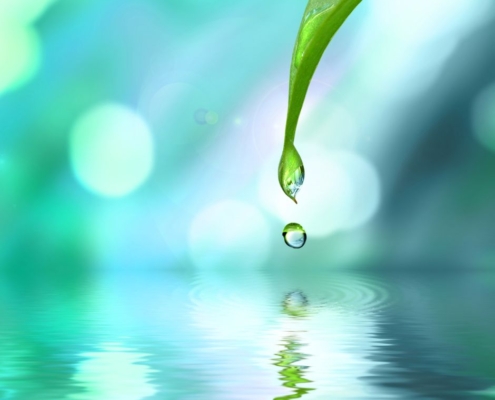Last Updated on March 12, 2024 by Mary Pressler
How Energy Efficiency Impacts Water Conservation
We think of earth-friendly energy as good for the climate, but did you know that it also has a direct effect on our water use? As Texas and the Southwestern U.S. faces increased risk of drought brought on by climate change, it’s important for all communities to take steps that can reduce carbon emissions and help to conserve water. Here’s what you need to know.
Addressing the Threat of Drought
According to the Environmental Protection Agency, large portions of the Southwest have experienced drought conditions since 2000. There have even been extended periods — notably 2002–2005 and 2012–2020 — when nearly the entire region was abnormally dry. One study1 even shows that 2000–2021 might have been the driest 22-year period for the region in over 1,200 years.
Texas is certainly no stranger to drought, with the Texas Water Development Board stating that the recent 2022 drought rivaled some of the worst conditions in recent history and continues to threaten the state’s economy as well as the health and safety of its people. Statistics from Water Data for Texas show that Texas reservoirs have been well below the median capacity for the past couple of years.
This period of drought for the Southwest is now seen as an emerging megadrought and a major driver of the aridification of the region. If we’re to address the threat of drought, then we need to think beyond just water conservation — because your choice of energy also has a powerful impact on water usage.
How Energy Use Affects Water Conservation
The production of conventional energy by nuclear power and fossil fuel plants relies heavily on freshwater, and the production and delivery of freshwater and wastewater relies heavily on energy. It’s a cycle that continues to put tremendous pressure on all of our freshwater reserves.
According to the International Energy Agency (IEA), the global energy system used around 370 billion cubic meters (bcm) of freshwater in 2021, which is roughly 10% of total global freshwater withdrawals. A study in Scientific American showed that 45.3% of water drawn from lakes, rivers, and underground aquifers in the U.S. is used for nuclear and fossil fuel power generation.
As long as the power sources that have the highest water usage — natural gas, coal and nuclear power plants — are our largest suppliers of electricity, our communities will continue to deplete our freshwater reserves. That’s a problem, as the IEA predicts that the energy industry’s use of freshwater will rise from roughly 370 bcm to nearly 400 bcm by 2030. That makes our power sectors vulnerable to water depletion, putting our energy security at greater risk to water shortages and droughts.
Earth-friendly and renewable energy technologies such as solar, wind, and hydropower offer a more sustainable alternative, helping to significantly reduce our water consumption:
- Solar photovoltaic systems and wind turbines do not require water for their operation, making them an effective water-saving energy source for water-scarce regions.
- Some hydropower systems can minimize their water consumption by generating electricity without the need for large reservoirs or major disruptions to natural river flows. They can also employ reservoirs to aid in water storage and flood control.
Water conservation also goes hand in hand with energy efficiency as the production, treatment, and distribution of water to homes and businesses is energy-intensive. The EPA estimates that drinking water and wastewater systems account for approximately 2% of energy use in the United States each year and up to 30–40% of total energy consumed by municipal governments. As much as 40% of the operating costs for drinking water systems can be just for its energy consumption.
Being both water and energy efficient provides a wide range of benefits—for utilities, consumers, businesses, and the community as a whole. By conserving water, we can not only preserve our water supply, we can reduce the amount of energy we need for these processes. At the same time, by using earth-friendly or renewable energy sources we can also reduce the amount of freshwater consumed, helping to relieve the stress on already taxed water reserves.


Leave a Reply
Want to join the discussion?Feel free to contribute!